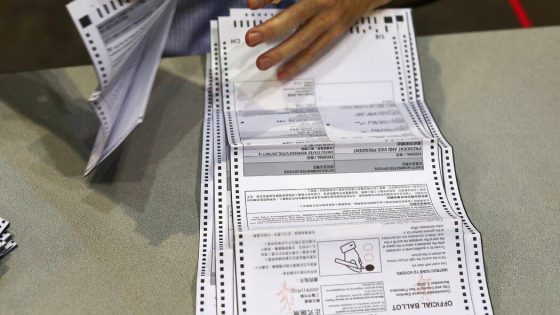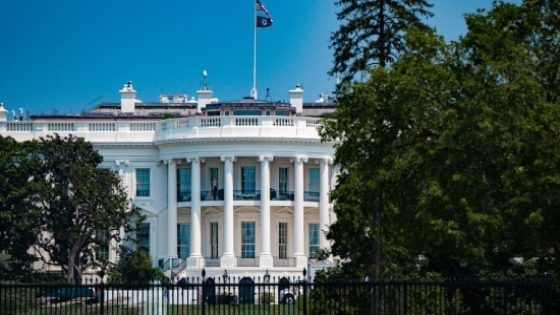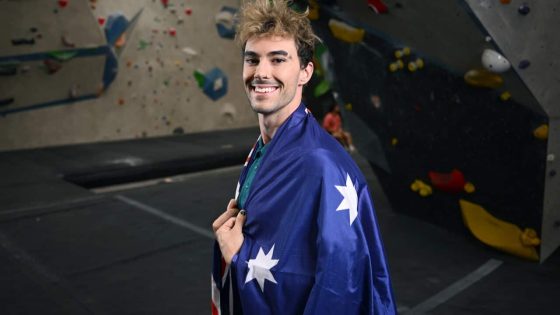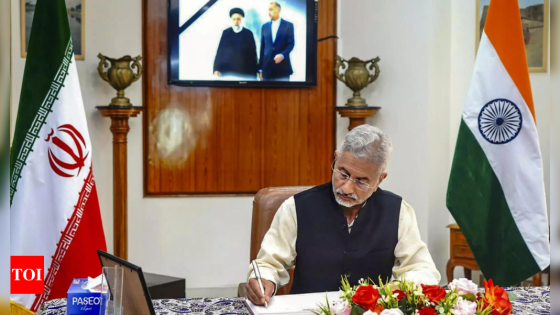Hong Le still remembers meeting a charismatic woman campaigning for San Francisco district attorney in 2003. In Cantonese, that woman’s name was 賀錦麗, which is pronounced Ho Gam-lai and means “Congratulate Brocade Beautiful.”
Most Americans know her by another name: Kamala Harris.
“She’s the vice president right now,” Mr. Le, 88, said in Cantonese. “And she deserves it.”
In San Francisco, where more than a fifth of residents are of Chinese descent, politicians have long taken a second name in Chinese characters. And any serious candidate knows to order campaign materials in English and in Chinese.
But the city’s leniency for adopted names has frustrated some Chinese American candidates, who say that non-Chinese rivals have gone overboard by using flattering, flowery phrases that at first glance have little to do with their actual names. Some candidates have gained an advantage or engaged in cultural appropriation, the critics say.
No more. For the first time, San Francisco has rejected Chinese names submitted by 22 candidates, in most cases because they could not prove they had used the names for at least two years. The city has asked translators to furnish names that are transliterated, a process that more closely approximates English pronunciations.
That means Michael Isaku Begert, who is running to keep his local judgeship, cannot use 米高義, which means in part “high” and “justice,” a name that suggests he was destined to sit on the bench.
And Daniel Lurie, who is challenging Mayor London Breed, must scrap the name he had been campaigning with for months: 羅瑞德, which means “auspicious” and “virtue.” Mr. Lurie’s new name, 丹尼爾·羅偉, pronounced Daan-nei-ji Lo-wai, is a transliterated version that uses characters closer to the sound of his name in English but are meaningless when strung together.
Most Chinese names feature two to three characters — a surname, and a one- or two-character given name. In the Chinese-speaking world, choosing a baby’s name can carry so much weight that some parents still consult fortune tellers who consider factors like the exact time of birth and the number of brush strokes in a character to suggest an auspicious moniker imbued with meaning.
The federal Voting Rights Act requires that jurisdictions with a significant number of voters who aren’t fluent in English — like the large Cantonese-speaking population in San Francisco — provide translated ballots and voter materials. The act, however, leaves it up to local election officials to decide whether that includes candidates’ names.
Certain towns in Alaska must translate ballots into Yup’ik, an Indigenous Alaskan language, while some counties in Arizona must do so in Navajo and Apache. Hundreds of jurisdictions around the nation must translate their ballots into Spanish, while 19 must print them in Chinese, 12 in Vietnamese and four in Korean.
San Francisco has mandated since 1999 that candidates’ names appear in both English and Chinese. But now, in adherence to a 2019 state law, it is requiring transliteration for new candidates while allowing those who can prove they have used a Chinese name for at least two years to keep using it. (The law also applies to ballots printed in Japanese and Korean.)
The switch isn’t universally popular. It ends a San Francisco tradition, cherished in some circles, in which Chinese leaders have bestowed names upon their favorite candidates. And it has the potential of resulting in long monikers that are difficult to remember or even cringe-worthy, since the characters that sound like someone’s name may translate into odd phrases in Chinese.
Fiona Ma, the California state treasurer, backed the legislative effort in 2019 after inconsistent policies had resulted in her Chinese name being changed without her knowledge.
Ms. Ma, the daughter of immigrants from China, had used her given Chinese name — 馬世雲, meaning “Horse Worldly Cloud” — on the ballot since the early 2000s, when she first ran for the San Francisco Board of Supervisors. She said she had always taken pride in her name, and the Chinese-language media had long referred to her by it. But Ms. Ma learned that her name had been changed to a transliteration on the June 2018 ballot.
The legislation that Ms. Ma sponsored set new ground rules. She wanted to ensure that candidates with a legitimate claim to a Chinese name could use them, but also that others not gain an unfair advantage by making up flattering names.
“If it’s a good name, like ‘Most Amazing Trustworthy Person’ or ‘Pro Public Safety,’ then it could make a difference,” Ms. Ma said.
At a recreation center in San Francisco’s Richmond District, some voters said that a candidate’s name has less impact on whom they choose than what one has done. Mr. Le said between games of ping pong that it mattered more to him whether candidates addressed the needs of the Chinese community.
“If you care, we’ll know your name,” he said.
Jen Nossokoff, a first-time candidate running for the San Francisco Democratic County Central Committee in March and for the Board of Supervisors in November, said she received a name, 高素貞, from a Chinese supporter last summer. The name is pronounced Gou Sou-zing in Cantonese, and calls to mind a well-known Chinese folk character who is regarded as a symbol of kindheartedness.
“It means integrity,” she said. “It means ambition.”
She printed the name on her campaign signs, many of which hang in the windows of her neighbors’ homes.
But the name was rejected by the Department of Elections, which recently assigned her a transliterated name, 珍·諾索科夫, or Zan Nok-sok-fo-fu in Cantonese — a hodgepodge moniker that has none of the lofty symbolism of her desired name.
Voters are now casting their ballots for the March 5 election, and Ms. Nossokoff said it’s confusing that the name on her campaign literature doesn’t match the one on the ballot. She said the mandated name change was unfair because her opponent in the supervisor’s race, the incumbent Connie Chan, is the one who notified the Department of Elections that it was violating state law.
Ms. Chan, 45, a native of Hong Kong, moved to San Francisco’s Chinatown with her mother and younger brother when she was 13. Her given name was Szeman, but she quickly changed it after arriving in the United States because, she said, it “sounds like semen.”
Instead, she joined legions of other Chinese girls her age and officially changed her name to honor Connie Chung, the trailblazing news anchor.
Ms. Chan, knowing the state had passed the 2019 law, wrote a letter of inquiry last fall to the city’s Department of Elections. It’s still unclear why the city wasn’t abiding by state law — the elections chief John Arntz said he didn’t know — and the Board of Supervisors unanimously directed Mr. Arntz’s department to comply.
Mr. Arntz said that candidates can use a birth certificate or even a wedding invitation to prove they have a legitimate claim to a Chinese name. Otherwise, the city will provide their transliterated names.
“I feel strongly that our Chinese names are not a trend,” Ms. Chan said. “It indicates a relationship with the community that I’m not sure they’ve worked hard to build. It’s cultural appropriation.”
Ms. Chan has bestowed Chinese names on white colleagues in the past. When Supervisor Matt Dorsey was the spokesman for the city attorney in 2016, he wanted a Chinese name that could appear consistently in the Chinese press rather than having reporters come up with different translated versions in different outlets.
Ms. Chan, then a City Hall aide herself, thought he had demonstrated his commitment to the Chinese community through his years of public service. She gave him a name that sounded similar to Matt Dorsey and had a pleasant meaning.
Well, sort of.
He’s now known in the Chinese community as 麥德誠: “Kind Barley.”
Zhe Wu provided Cantonese interpretation for this story.
Source Agencies




